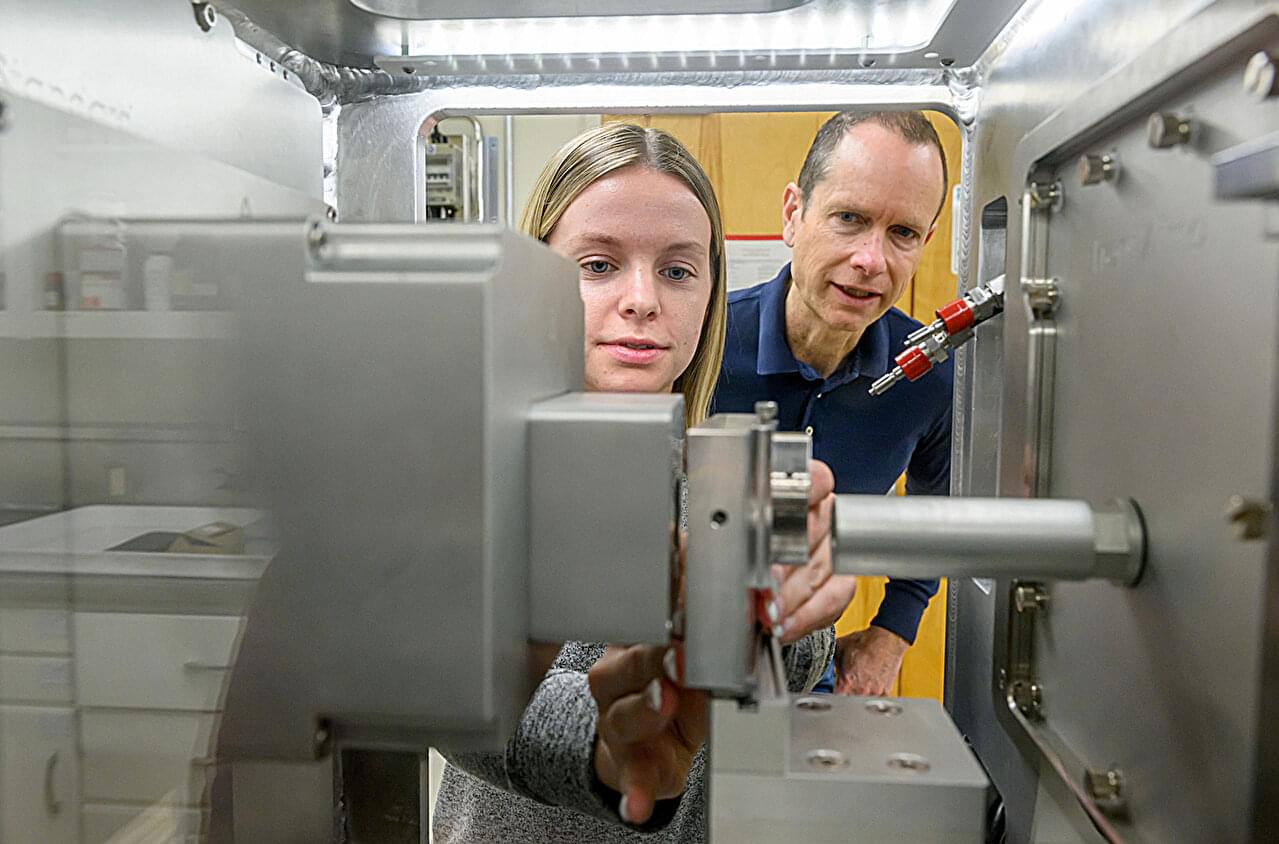A squishy, layered material that dramatically transforms under pressure could someday help computers store more data with less energy.
That’s according to a new study by researchers at Washington State University and the University of North Carolina at Charlotte that shows a hybrid zinc telluride-based material can undergo surprising structural changes when squeezed together like a molecular sandwich. Those changes could make it a strong candidate for phase change memory, a type of ultra-fast, long-lasting data storage that works differently than the memory found in today’s devices and doesn’t need a constant power source.
The research was made possible by a X-ray diffraction system that was acquired in 2022. This specialized equipment lets researchers observe tiny structural changes in the material as they happened—all from WSU’s Pullman campus. Usually, these kinds of experiments require time at massive national facilities like the Advanced Light Source at Berkeley National Laboratory in California.
